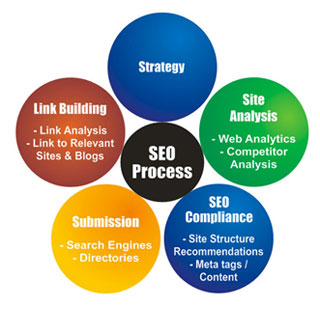 When we go through the initial stages of capturing the clients requirements for a new website, one of the most important decisions they need to make is whether to include a Content Management System (CMS). Quite simply, a CMS allows the client, or any registered user, to login to the website and update or add new content.
When we go through the initial stages of capturing the clients requirements for a new website, one of the most important decisions they need to make is whether to include a Content Management System (CMS). Quite simply, a CMS allows the client, or any registered user, to login to the website and update or add new content.
There are several key benefits to a system to manage website content:
Immediacy – content will ‘go live’ straight away. Save your work and it’s done.
Cost – you don’t need to email the website designer and pay them to add or modify content.
Flexibility – you can make the changes when and where you like.
Productivity – numerous users can make changes to and add new content as required.
Scalability – new functionality can be easily added to the site. e.g. a forum or a blog.
Sounds like a win-win situation? Well, not quite. The possible downsides are:
Cost – websites based on an underlying CMS are more complicated to build than a static site, so they’re more expensive!
Risk – a user of the CMS may make a big mistake! Content may be deleted or corrupted and need to be restored by the web developer. Could be costly.
So how do you decide if your website needs a CMS? It’s all about content! If your site is purely static in content (i.e. information-based and not requiring regular updates or new material) you probably do not need a CMS. But if you do change the content regularly (e.g. event schedules, listings) or add new content (e.g. posting on a blog, news items, articles) then you need a CMS.
So which CMS? For most users a relatively simple, off-the-shelf system such as Joomla, Drupal or WordPress are probably sufficient. They are widely used and open-source (no purchase or licence costs) and benefit from a large user base and frequent improvements and updates to keep them secure and contemporary.
Traditionally WordPress has been the platform of choice for blogging, but the last couple of years have seen a huge increase in using Worpdress as the underlying CMS for complete websites. So much so that WordPress has been awarded the Overall Best Open Source CMS Award in the 2009 Open Source CMS Awards. This is the first time Worpdress has won this award, so it may mark a shift in the public perception of WordPress, from blog software to full-featured CMS. It implies the web community is embracing WordPress to power not just their blogs but entire sites and communities without compromising on usability or scalability.
Both Joomla and Drupal are long-established CMS’s, that are used to maintain the simplest community or club websites, up to medium-sized businesses. They require a slightly steeper learning curve for the user (and developer!), but can offer greater functionality and flexibility than WordPress ‘out-of-the-box’.
So the conclusion? Every clients’ requirements are different, so every solution is different. But if you want a website that is easily scalable, you can easily add content to and has lower running costs, then a CMS is for you!



